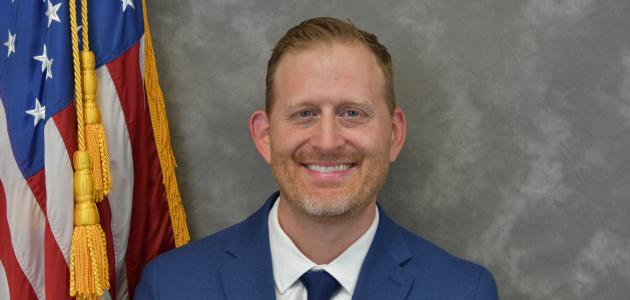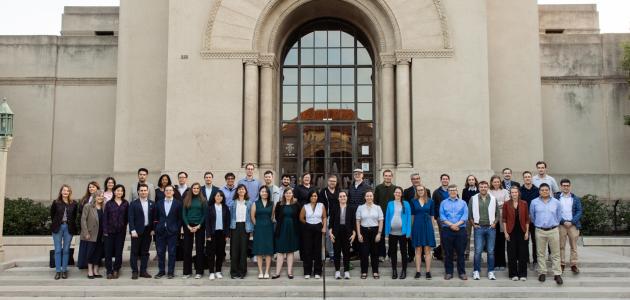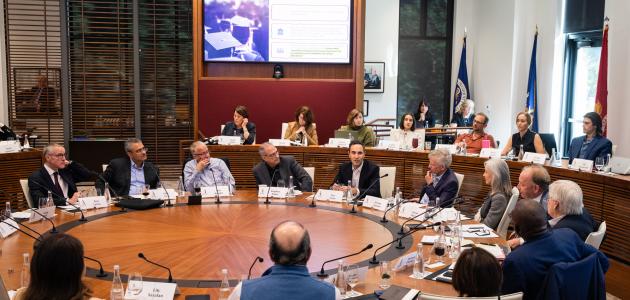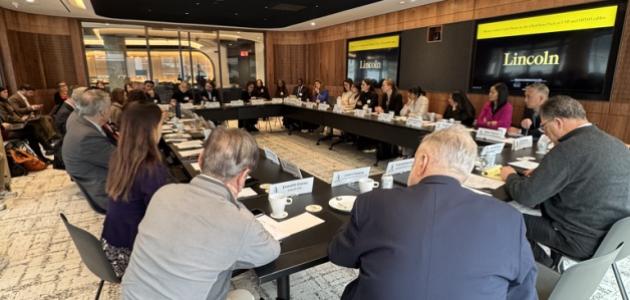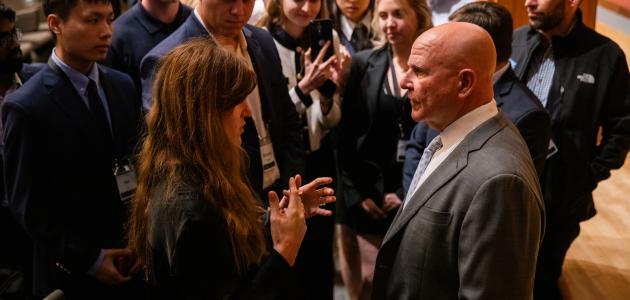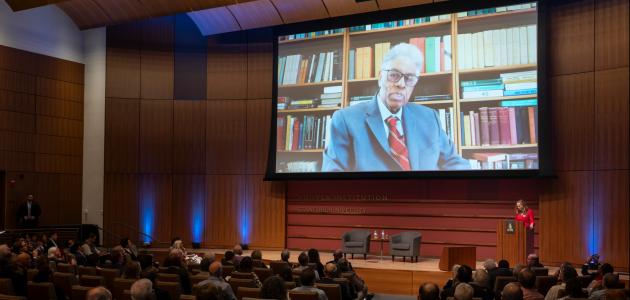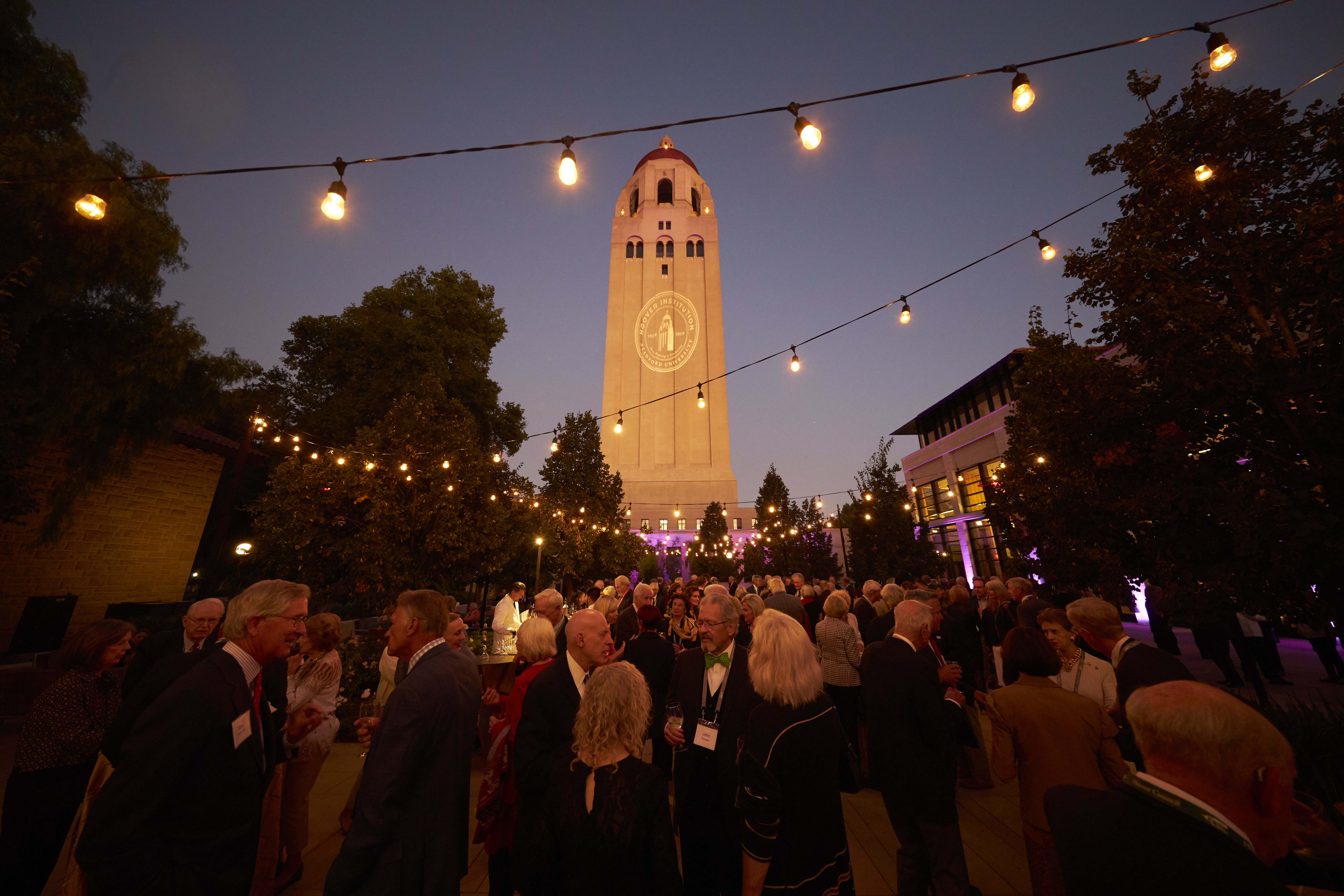
The opening of the Hoover Institution 2019 Fall Retreat—the final retreat of Hoover’s centennial year—could not have been more appropriate. Hoover fellow Peter Robinson, Murdoch Distinguished Policy Fellow, sat on a stage before the dinner audience. Across from him sat Jimmy Lai, Chinese entrepreneur, publisher, and longtime advocate for human rights. Lai is a prominent leader of the recent Hong Kong protests against encroachment by the Communist Chinese government.
The topic of the interview—filmed as part of Hoover’s Uncommon Knowledge series, hosted by Robinson—was “Hong Kong, China, and the True Meaning of Liberty.” The pair discussed the situation in Hong Kong and the inspiration given by American values to those protesting the threats to freedom.
This inspiration included the lessons taught to Lai about freedom and free markets by the late Milton Friedman of the Hoover Institution, whom Lai had hosted in trips to China.
Near the end, Robinson asked,
We’ve talked about Hong Kong. What about Jimmy Lai? In 2009 you were the target of an assassination attempt. In 2015 your house was firebombed. Revenues at your publications have dropped, in large measure because the Chinese have pressured companies to avoid advertising with you. Just a couple of months ago your house was firebombed again. You are tailed wherever you go. Members of your family are harassed. The government has put up posters of your children so they can be recognized. . . . Under what circumstances does Jimmy Lai get out of Hong Kong?
Lai’s answer was unhesitating. “I would not get out of Hong Kong.” He continued, “Milton Friedman once said, ‘There is no free lunch.’ If I take a stand, I stand. The way they treat me, the way they harass me, that’s just ‘lunch’ [for which] I can’t avoid paying. . . . I have long determined not to be frightened by fear.” He said, “I tell myself, Don’t think about the consequences. Just do what is right.”
Peter Robinson concluded, “It must have felt something like this to spend time with John Adams or Patrick Henry.”
AYAAN HIRSI ALI: “ARE WE GOING TO STAND?”
Seeing liberty being fought for in Hong Kong gave attendees a fresh appreciation for the importance of standing for liberty in America.
The next afternoon, Hoover fellow Ayaan Hirsi Ali, Hoover research fellow, stated that Jimmy Lai reminds us what we have: the rule of law, democratic principles, free markets, and more. “People across the world long for them,” she said. And they look to America, as the Hong Kong protestors do, as the exemplars of such values.
The tragedy, she said, is that too many Americans are wavering.
“Are we going to stand?” she asked. “How can we stand when we come to doubt these values ourselves?” We are, she warned, as risk of “throwing them away.”
She cited examples:
- The creation of identity politics, in which special interests build up—and take over—government powers by creating “victim” classes, what Ali called “the market for victims,” a ploy to expand government beyond its intended role.
- Attempts to overturn the rule of lawful processes, including the refusal of UK progressives to accept Brexit, the refusal of American progressives to accept the Trump presidency, and the refusal of progressives to accept the Kavanaugh Supreme Court nomination.
- Fearmongering and the eschewing of reason in measures such as the Green New Deal.
She advocated “telling the story of the free market and Western freedom” that has brought such material and cultural good to the world. “We need to go back to Western principles,” she said. “Don’t apologize for them.”
DEFENDING OUR FREE SOCIETY
And indeed, the retreat presenters defended Western values without apology. On the levels of principle and practice, socialism had been factually discredited by lunchtime on Monday, and free markets defended.
The lineup that morning consisted of Hoover fellows Lee Ohanian, Scott Atlas, Niall Ferguson, and John Cochrane.
Lee Ohanian, senior fellow at Hoover, led off with a presentation that explained why socialism is gaining traction in America and provided easy-to-understand facts and arguments to refute it as an option. These included test cases showing that socialism had failed in every form tried in every nation trying it. Sweden, the USSR, China, Venezuela—it has always failed, and the data prove it.
Ohanian showed that many of the nations often cited by American advocates for socialism as models are now moving rapidly away from socialism and back to free markets.
Scott Atlas, David and Joan Traitel Senior Fellow at Hoover, followed by dissecting a recent World Health Organization report. He asserted that the report misinterpreted and misrepresented the data to favor nations with socialist medicine over the United States. He exposed their analytical errors and presented other data that show the superiority of health care in America under conditions closer to a free market.
Niall Ferguson, Milbank Family Senior Fellow, then put into historical perspective the current rise in socialism’s popularity and the lessons for conservatives seeking to overcome it.
Finally, John Cochrane, Rose-Marie and Jack Anderson Senior Fellow, provided an X-ray, of sorts, of the progressive left. Reinforcing the previous speakers, he claimed that the progressive agenda would lead to economic disaster. Nevertheless, the proponents of such an agenda are intelligent. What, he asked, is driving them?
His conclusion is that progressives are driven by the quest for power via a utopian ideology based on a belief in the perfectibility of humanity. He concedes that the drive to create such a society is intensely emotional and motivating. It is, however, an erroneous view, which America’s founders rejected and which leads to the desire for concentrated power.
“It’s not about the next election,” he said. “This is about a conflict of ideas. It will go on past the election and transcends the election. Ideas are the key.”
ADVANCING IDEAS AND SOLUTIONS
Other speakers vigorously advanced the ideas and practical solutions to counter the current surge in progressive energy.
Peter Berkowitz, Tad and Diane Taube Senior Fellow, reminded the audience of the strength of the underlying principles of the American system of government and economics in his comparison of the ideas of John Locke—which were embraced by the nation’s founders—and Karl Marx.
Marx’s unrealistic, utopian views of human nature, he said, lead to rigidity and social failure. Yet these views are shared by today’s progressives. Locke’s conception leads to a society that is realistic and therefore more workable.
Kevin Hassett, a new Distinguished Visiting Hoover Fellow and until recently the chairman of the White House Council of Economic Advisers, reported on the stunning success of the free-market reforms initiated by the White House. This includes the tax cuts, which were heavily informed by input from Hoover fellows, and regulatory reform.
And the final presenters were Shelby Steele, Robert J. and Marion E. Oster Senior Fellow, and special guest Robert Woodson, Sr. Woodson, a renowned civil rights leader, is president and founder of the Woodson Center. He told of his work alleviating poverty through “applying free-market principles to character and community.” He blamed the big-government Great Society programs, which constituted a federal power grab, as the main drivers behind poverty in the black community.
MOVING FORWARD
Hoover and its supporters are moving forward doing exactly what Ayaan Hirsi Ali advocated: telling the story of freedom to more Americans.
As always, Hoover insights and research are influencing decision makers at the top levels of government. But more is needed, and more is being done. Examples include:
- Hoover’s PolicyEd video series—short, animated videos featuring Hoover fellows explaining free-market principles aimed at a younger, persuadable, non-conservative demographic. Current tracking shows that 63 percent pf viewers are ages 18–44. More than 60 percent are female. And 61 percent are either “liberal” or “very liberal.” Our ideas are penetrating the very social sectors we must influence.
- Hoover’s new Prosperity Project on Socialism and Free-Market Capitalism to directly rebut the claims of socialists—and publicly disseminate those refutations to change public minds.
- Planning an online high school economics curriculum—currently in the development stage.
- Hoover’s annual Summer Boot Camps for young scholars who will learn and influence others.
“WE LIVE IN MOMENTOUS TIMES”
Kevin Hassett, in his presentation, ended on a note of optimism and challenge:
I think that we’re in a second Renaissance because the internet has done to our curated [information-controlled] society exactly what the Gutenberg press did to society back then. That’s why everyone is tense. We live in momentous times where big changes are afoot. We’re right at the pinnacle of the fight between capitalism and socialism. . . . What a blessing it is that we have a chance to be leaders in this second Renaissance. And what a blessing it is to be at Hoover, which is going to be the Florence of this Renaissance.
Thank you, Hoover supporters, for all you do for our society and for the future of liberty.







